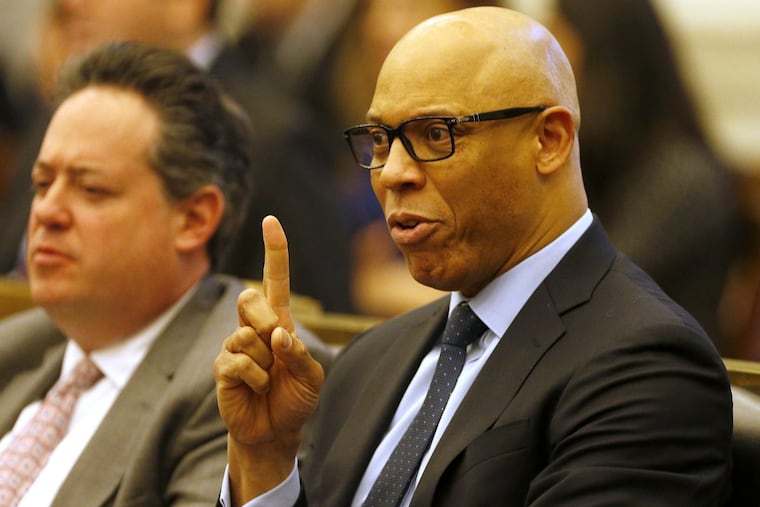Banking on city cash, Philly school district introduces $3.2B budget
Schools chief William R. Hite Jr. said the district is in the "best academic and fiscal shape it's been in since I became superintendent." It plans to hire some new teachers, add supports for struggling schools, and more.

With the promise of a massive cash infusion from the city, the School Reform Commission on Thursday green-lighted the broad outlines of a proposed $3.2 billion budget for next year that would include new spending on additional teachers, supports for struggling students, and building repairs.
It is a vastly different picture from last year, when officials projected a budget gap of hundreds of millions of dollars over five years. The Philadelphia School District's lame-duck governing body lacks the ability to raise its own revenues. Those are rising at a slower pace than its fixed costs.
But in the wake of moving for local control of the district, Mayor Kenney pledged to cover its deficits and this month proposed raising nearly $1 billion for the school system via a property-tax hike and other measures. As a result, the school system is certain it can sustain its current level of spending and even planning to make some badly-needed investments, said chief financial officer Uri Monson.
"I don't think I ever thought I'd see this," Monson said of the healthy budget picture. "You can see what the city commitment would do for us."
Schools chief William R. Hite Jr. said the district was "in the strongest academic and financial position it has been in since I became superintendent."
The SRC, which will cease to exist June 30, voted unanimously to adopt the so-called lump-sum budget, which contains the amount the district plans to spend next year but does not commit to details about it. The spending plan covers 130,000 students in traditional public schools and 75,000 in charters.
"Mayor Kenney's school funding plan is the next critical step to controlling our future," Hite said. "It builds on our progress, ends the cycle of budget gaps and ensures future fiscal stability. Right now, we are making progress and creating the conditions for greater academic growth and more equitable educational opportunities for more students."
Overall, the schools' budget expenditures are expected to jump 5.3 percent, to $3.1 billion. The budget does not anticipate any school closures for 2018-19.
Among the new investments proposed in the budget are: an expansion of the district's early literacy effort, previously focused on kindergartners through third graders, to add fourth- and fifth-grade supports; classroom modernization work at 11 schools; new special education, music and English for Speakers of Other Languages teachers; more money for art and music supplies; and more financial support for struggling schools and students.
The total value of that new spending is about $235 million over five years, but it will cost the district $335 million in that time frame, as charter payments rise when the district spends more money on its own schools.
The district is also upping its capital outlay. The school system had planned to spend $200 million annually to fix aging buildings which, according to a 2017 study, require $4.5 billion in work over a decade. But now, it plans to spend $250 million each year as a result of the city's pledged money and the school system's improved bond ratings.
The bulk of the increase to the district's budget, however, comes in other areas: from increases in payments to charter schools (by $79 million, to nearly $984 million), debt service (by $25 million, to $301 million), salaries (by $19 million, to $833 million). Pension costs have also soared over the last five years, as they have for all Pennsylvania districts — pension costs will have risen 500 percent between 2011 and 2023, to over $300 million by 2023.
Officials acknowledged that risks were built into the spending plan. Most significantly, City Council has already balked at Kenney's proposal to raise property taxes. But Monson also flagged as possible problems the supposition that the governor's proposed spending for Philadelphia does not pass, the specter of increases in the state teachers' retirement system contributions, and changes to the charter school funding formula that might affect the district.
City officials tweaked their school funding package on Thursday, lowering Kenney's proposed property tax increase to 4.1 percent from his initial call for a 6 percent hike.
Officials credited a new round of property assessments they said resulted in an 11 percent increase in total property value. They promised to release details on the increase in assessment in the coming weeks.
Thursday's school budget proposal is just the first in the district's budget calendar. School principals must complete individual budgets; the SRC is scheduled to hold a budget hearing April 19, take its case to City Council on May 9, and adopt its budget May 24.
Staff writer Claudia Vargas contributed to this article.